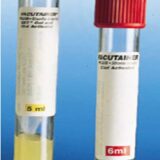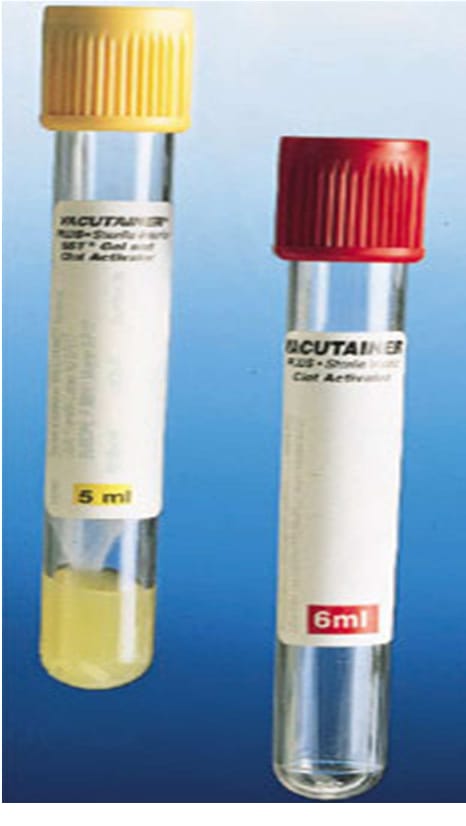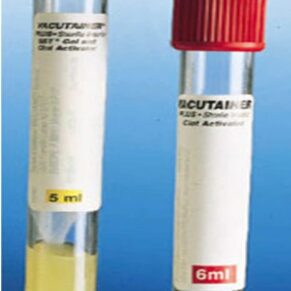- Your cart is empty
- Continue shopping
Shop
Quadruple Marker : Blood Test
Definition
The quadruple screen test is a blood test done during pregnancy to determine whether the baby is at risk for certain birth defects.

Alternative Names
Quad screen; Multiple marker screening; AFP plus; Triple screen test; AFP maternal; MSAFP; 4-marker screen; Down syndrome – quadruple; Trisomy 21 – quadruple; Turner syndrome – quadruple; Spina bifida – quadruple; Tetralogy – quadruple; Duodenal atresia – quadruple; Genetic counseling – quadruple; Alpha-fetoprotein quadruple; Human chorionic gonadotropin – quadruple; hCG – quadruple; Unconjugated estriol – quadruple; uE3 – quadruple; Pregnancy – quadruple; Birth defect – quadruple
How the Test is Performed
This test is most often done between the 15th and 22nd weeks of the pregnancy. It is most accurate between the 16th and 18th weeks.
A blood sample is taken and sent to the lab for testing.
The test measures levels of 4 pregnancy hormones:
- Alpha-fetoprotein (AFP), a protein produced by the baby
- Human chorionic gonadotropin (hCG), a hormone produced in the placenta
- Unconjugated estriol (uE3), a form of the hormone estrogen produced in the fetus and the placenta
- Inhibin A, a hormone released by the placenta
If the test does not measure levels of inhibin A, it is called the triple screen test.
To determine the chance of your baby having a birth defect, the test also factors in:
- Your age
- Your ethnic background
- Your weight
- Your baby’s gestational age (measured in weeks from the day of your last period to the current date)
How to Prepare for the Test
No special steps are needed to prepare for the test.
How the Test will Feel
You may feel slight pain or a sting when the needle is inserted. You may also feel some throbbing at the site after the blood is drawn.
Why the Test is Performed
The test is done to find out if your baby might be at risk for certain birth defects, such as Down syndrome and birth defects of the spinal column and brain (called neural tube defects). This test is a screening test, so it does not diagnose problems.
Certain women are at greater risk of having a baby with these defects, including:
- Women who are over 35 years old during pregnancy
- Women taking insulin to treat diabetes
- Women with a family history of birth defects
Normal Results
Normal levels of AFP, hCG, uE3, and inhibin A.
Normal value ranges may vary slightly among different laboratories. Talk to your health care provider about the meaning of your specific test results.
What Abnormal Results Mean
An abnormal test result does NOT mean that your baby definitely has a birth defect. Often, the results can be abnormal if your baby is older or younger than your provider had thought.
If you have an abnormal result, you will have another ultrasound to check the age of the developing baby.
More tests and counseling may be recommended if the ultrasound shows a problem. However, some people choose not to have any more tests done, for personal or religious reasons. Possible next steps include:
- Amniocentesis, which checks the AFP level in the amniotic fluid surrounding the baby
- Tests to detect or rule out certain birth defects (such as Down syndrome)
- Genetic counseling
- Ultrasound to check the baby’s brain, spinal cord, kidneys, and heart
During pregnancy, increased levels of AFP may be due to a problem with the developing baby, including:
- Absence of part of the brain and skull (anencephaly)
- Defect in the baby’s intestines or other nearby organs (such as duodenal atresia)
- Death of the baby inside the womb (usually results in a miscarriage)
- Spina bifida (spinal defect)
- Tetralogy of Fallot (heart defect)
- Turner syndrome (genetic defect)
High AFP can also mean that you’re carrying more than 1 baby.
Low levels of AFP and estriol and high levels of hCG and inhibin A may be due to a problem such as:
- Down syndrome (trisomy 21)
- Edwards syndrome (trisomy 18)
Considerations
The quadruple screen can have false-negative and false-positive results (although it is slightly more accurate than the triple screen). More tests are needed to confirm an abnormal result.
If the test is abnormal, you may want to talk to a genetic counselor.




Customer reviews
Reviews
There are no reviews yet.
Write a customer review